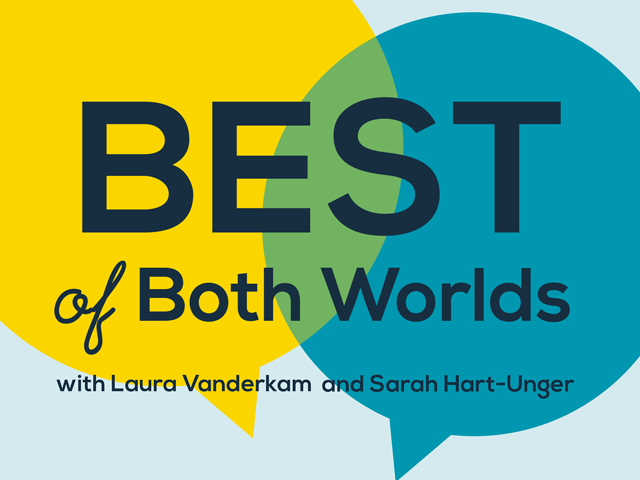A lot of the literature about the problems women face at work is aimed at women themselves. This makes sense — it’s easier to address yourself, individually, than to change the world. And so there’s plenty of advice on negotiating, on projecting confidence, on raising one’s ambitions. But according to Michelle P. King, author of The Fix (which came out at the beginning of March), all this “women-fixing” doesn’t dismantle the barriers that make for inequitable workplaces. Instead, men and women need to address those barriers directly.
King is the director of inclusion at Netflix. In this episode of Best of Both Worlds, she shared some of the strategies people can use to point out and help fix these invisible obstacles. Some of the practical suggestions in the book involve having “entrance” interviews, rather than just exit interviews — and continue to have regular check-ins about work conditions and how everything is going. Many organizations only find out people are unhappy when they’re leaving! King also touts the power of subversive questions. It can be hard to directly call out discriminatory behavior. Instead, just asking people for clarification or for their reasoning can keep things from being assumptions.
Since King works at Netflix, we had to talk about that! We just became a Netflix household over Christmas and my family members are really enjoying some of the shows during our confinement (now at T+ 3 weeks since our first school closure…). In the Q&A section, I address a listener question on how to figure out whether opportunities requiring travel are worth it. (Not a question I’m really facing at the moment…my maternity leave from speaking has gotten quite a bit longer with most Q2 conferences canceled…)
Please give the episode a listen and let us know what you think! We’ll have another COVID-19 bonus episode soon.


You definitely picked a good time to start a Netflix subscription! My family uses ours heavily. We don’t have cable TV anymore but subscribe to various streaming services. I am grateful for all of them these days.
@Sarah K- yes, this turned out to be fortuitous!
Haha! We cut the cord to our cable subscription 15 years ago and started Netflix at the same time, way back when they sent you dvds in the mail. Best decision ever! It’s remarkable how much media has changed since then.
@omdg- the DVDs! Humorously, we still have a DVD player and use it…
I for one appreciated the opportunity to run and listen to something non-COVID related. Thanks for the break!
I am a dedicated listener, and was looking forward to this episode based on its description. However, I found it to be rather painful to listen to. This is due to King’s long-windedness and monologue style rather than an having an engaging discussion with you and Sarah. I would have preferred King to focus on a few key findings and strategies to implement rather than try to fit the entire contents of her book within your podcast. I do think her research is valuable, I just wish it was presented more succinctly in her interview.
Hi, as a linguist and in the spirit of this episode, I just want to mention that critiquing the way women deliver information, rather than just listening to them, is one of the common barriers that holds women back. Why is it a reasonable expectation for all guests to know Sarah and Laura’s style or to fit a complex research topic into sound bites? For more on this topic if you like podcasts, I’d recommend the Vocal Fries podcast.
I’m really glad you did this episode. I am a dedicated listener, but I sometimes get frustrated with what seems to me like more of a focus on hacking the status quo than changing the structural inequities in our world.